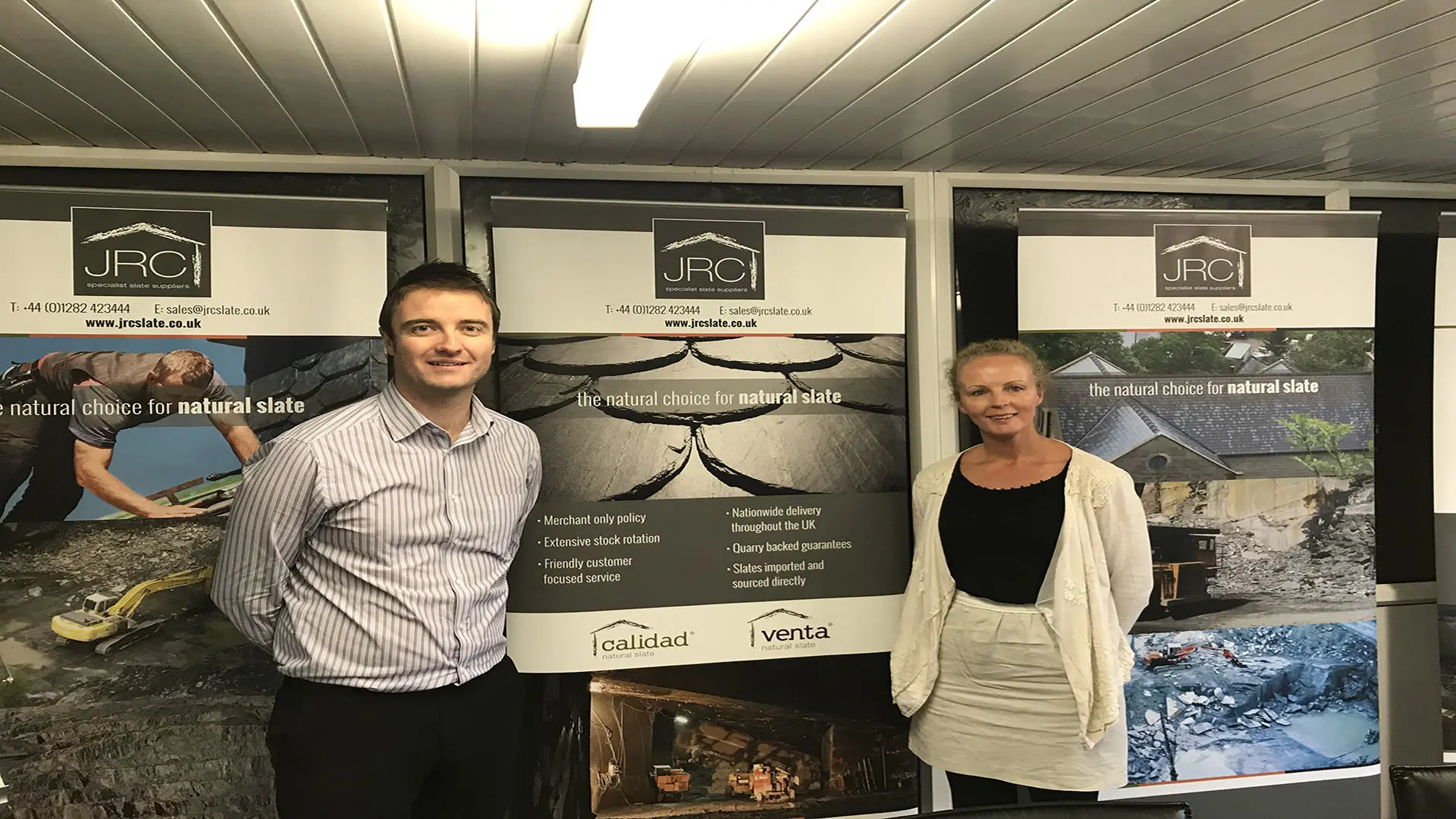A Burnley-based specialist slate supplier has transformed its site lighting – and is set to transform its energy bills – thanks to support and funding from the University of Central Lancashire and ERDF.
JRC, based in Burnley, specialises in the supply of natural slate. As a Lancashire SME, the company was eligible for support from UCLan’s Making Carbon Work (MaCaW) programme, which is part-funded by the European Regional Development Fund (ERDF). Thanks to a free audit and match-funded grant, the company has transformed its office and warehouse lighting which has shed new light on its operations and stands to save the business more than £1,000 every year.
Carbon assessment confirms suspicions
JRC had known for some time that they needed to address the ageing fluorescent lighting in the company’s offices and the sodium lights in its warehouse.
“We could see spikes in our electricity bills every October,” explained JRC Director of Planning Rosie Connor. “So we knew we needed to do something, but it’s always better when you do it with people who can talk you through the process – how it will work and what will happen next. Particularly now, when everyone has to be careful with their investments, if you can know how much you’ll save before you start it can give you an added incentive to take action.”
A coronavirus carbon assessment
JRC’s onsite audit took place in January 2020, but as Covid became a reality of UK life, the company was the first to experience a purely digital version of MaCaW’s reporting and post-audit services. Rosie was pleased with the results, which identified potential savings from solar PV and LED lighting, and which also highlighted a number of energy management opportunities. “These were simple, no-cost things,” Rosie explained, “like putting signs at the light switches reminding staff to switch off.”
The audit identified potential savings of £1,126 achievable by converting to all-LED lighting. Then, with MaCaW’s funding extended to 2023, the programme contacted Rosie in September 2020 about match funding to enable the work to take place.
Matched grant funding made simple
“We got lots of help to apply for the grant,” Rosie said.
"The MaCaW team were extremely professional when dealing with us. They made the process as seamless as it could be – we really had no issues with that at all. And they told us payback would take just 1.5-2 years, which is very good indeed."
— Rosie Connor - JRC Director of Planning
With the funding swiftly agreed the work took place in October 2020. Rosie hasn’t received her latest energy bill, but the difference is already clear. “The quality of the lighting in the warehouse is unbelievable. We weren’t aware that our old lighting was deteriorating every year so this has made such a difference. And now that we have things like timers on the lights in the toilets and canteen, we haven’t just replaced the lighting, we’ve improved it.”
Delighted to have made a big difference to JRC’s energy bills, carbon footprint and working environment, MaCaW’s Mark Nelson was equally happy that JRC made its commitment to the project during the pandemic.
“This was a great example of an SME prioritising carbon reduction during Covid-19,” he said. “It was also a great example of a quick grant turnaround, with the application received in September, approved early September and installed in October.
“In addition to the valuable cost savings, the expertise within the MaCaW team has helped JRC identify practices which they may not have otherwise had the expertise to identify. Setting the carbon footprint baseline will help the business in future tendering processes, providing evidence that they have implemented strategies to reduce their carbon footprint. And our other recommendations will help JRC reduce its energy usage and therefore reduce energy costs.”
Next steps
Pleased with the difference the LED lighting has made, Rosie is now planning to look at solar, another of the MaCaW report’s recommendations. “We haven’t done anything with that yet but it’s definitely in our plans. We just need to figure out how to do that on our [flat] roof.”
Rosie is happy to recommend MaCaW and stressed the reasons why: “This is great if you think you should be doing something to save energy and costs but are not sure what, or if you think an investment may be worthwhile but you need the proof beforehand. This is the perfect way to test whether it will work.”
MaCaW is a UCLan project, an industry and academic collaboration funded by ERDF alongside UCLan, and supported by Boost; Lancashire’s business growth hub.

